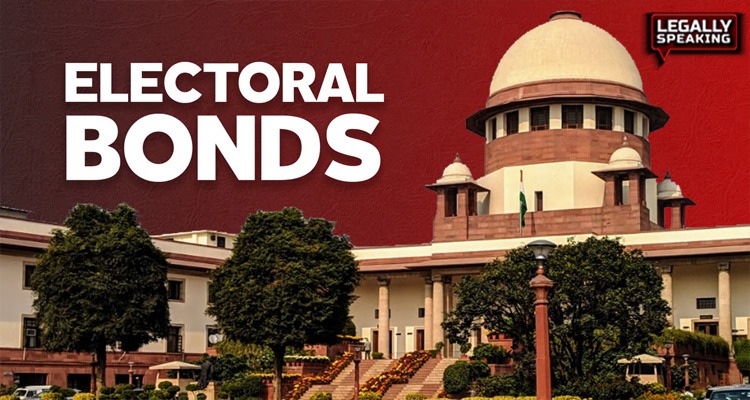
A five-judge constitution bench of the Supreme Court is scheduled to hear on March 11 an application submitted by the State Bank of India (SBI) seeking an extension of time until June 30 to disclose details of each electoral bond encashed by political parties before the scheme was annulled last month.
The bench, headed by Chief Justice D Y Chandrachud, will also address a separate plea which alleges contempt against the SBI, claiming it “wilfully and deliberately” disregarded the apex court’s directive to submit details of contributions made to political parties through electoral bonds to the Election Commission (EC) by March 6, 2024.
In a groundbreaking verdict delivered on February 15, a five-judge constitution bench nullified the Centre’s electoral bonds scheme of anonymous political funding, deeming it “unconstitutional” and mandating disclosure by the Election Commission of the donors, the donated amounts, and the recipients by March 13.
Directing the immediate cessation of the scheme, the apex court ordered the SBI, the designated financial institution under the scheme, to furnish by March 6 the specifics of the electoral bonds purchased from April 12, 2019, onwards to the Election Commission, which was directed to publish the information on its official website by March 13.
On March 4, the SBI petitioned the apex court seeking an extension of time until June 30 to divulge the details of the electoral bonds encashed by political parties.
In its application, the SBI argued that retrieving information from “each silo” and matching the data from one silo to another would be a time-consuming process.
The application noted that due to stringent measures taken to preserve the anonymity of donors, deciphering the electoral bonds and correlating the donors with the donations made would be a complex endeavor.
“It is submitted that donor details were kept in a sealed cover at the designated branches and all such sealed covers were deposited in the main branch of the applicant bank, which is located in Mumbai,” it stated.
Subsequently, a separate petition was lodged in the apex court seeking the initiation of contempt proceedings against the SBI for alleged disobedience of the apex court’s directives.
The contempt plea, filed by NGOs Association for Democratic Reforms and Common Cause, alleged that the SBI’s application for an extension of time was deliberately filed at the eleventh hour to prevent the disclosure of donor details and donation amounts to the public before the upcoming Lok Sabha elections.
“The petitioner herein is filing the instant petition seeking initiation of contempt proceedings against State Bank of India for wilfully and deliberately disobeying the order dated February 15 passed by this court… wherein this court directed SBI to submit details of contribution made to the political parties through electoral bonds to the Election Commission of India by March 6,” the contempt plea stated.
It highlighted that electoral bonds are “completely traceable,” evident from SBI’s maintenance of a secret number-based record of donors who purchase bonds and the political parties they donate to.
The contempt plea argued that any form of anonymity in the finances of political parties contradicts the essence of participatory democracy and the people’s right to information enshrined under Article 19(1)(a) of the Constitution.
It emphasized that the availability of information regarding electoral bonds will afford voters the opportunity to thoroughly scrutinize, express, and determine their choices.




